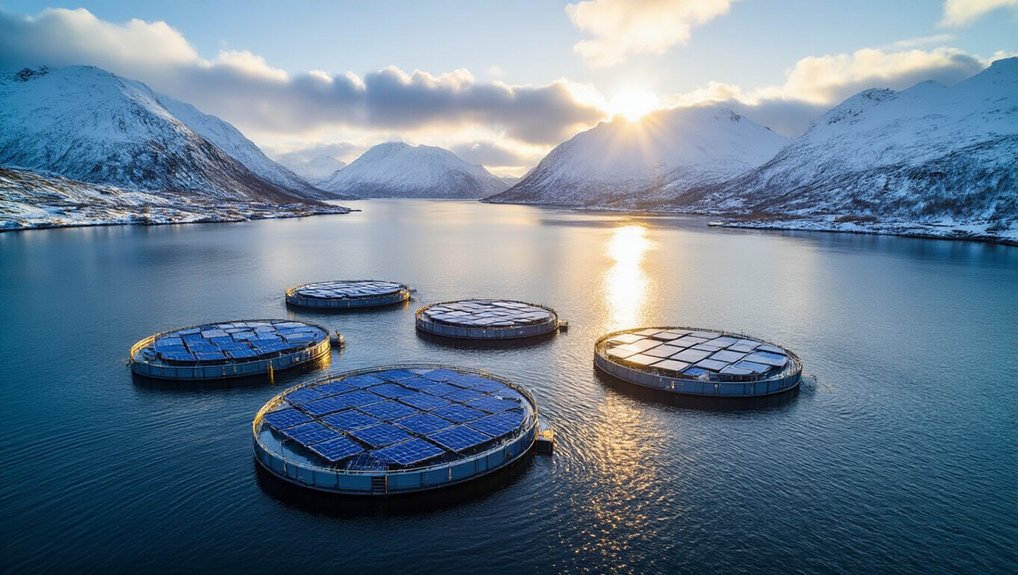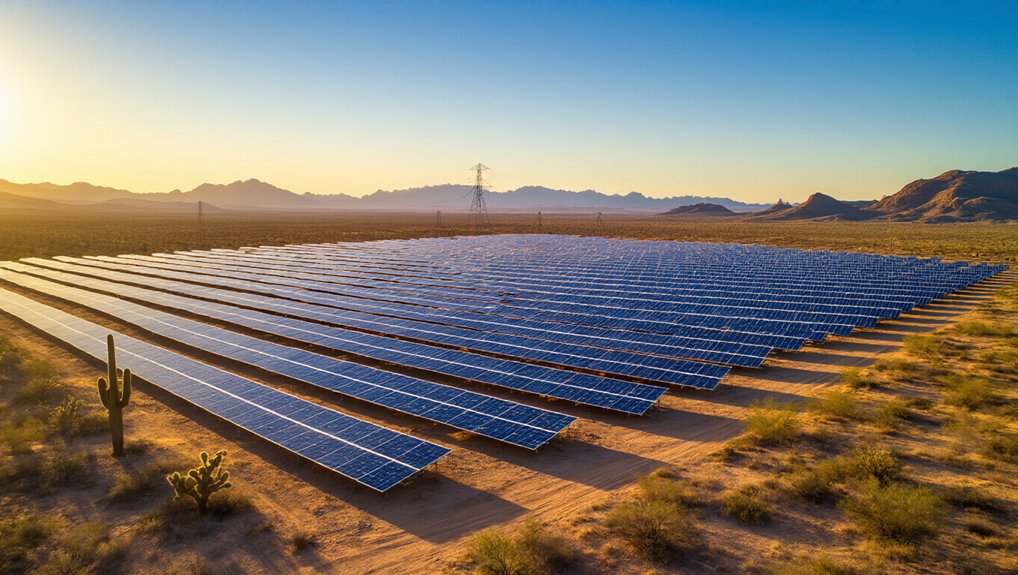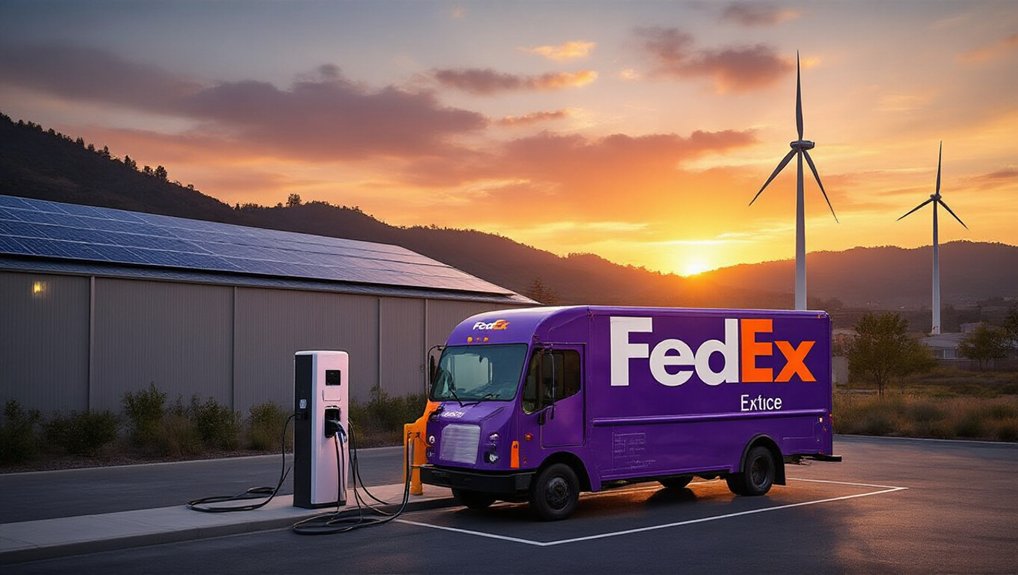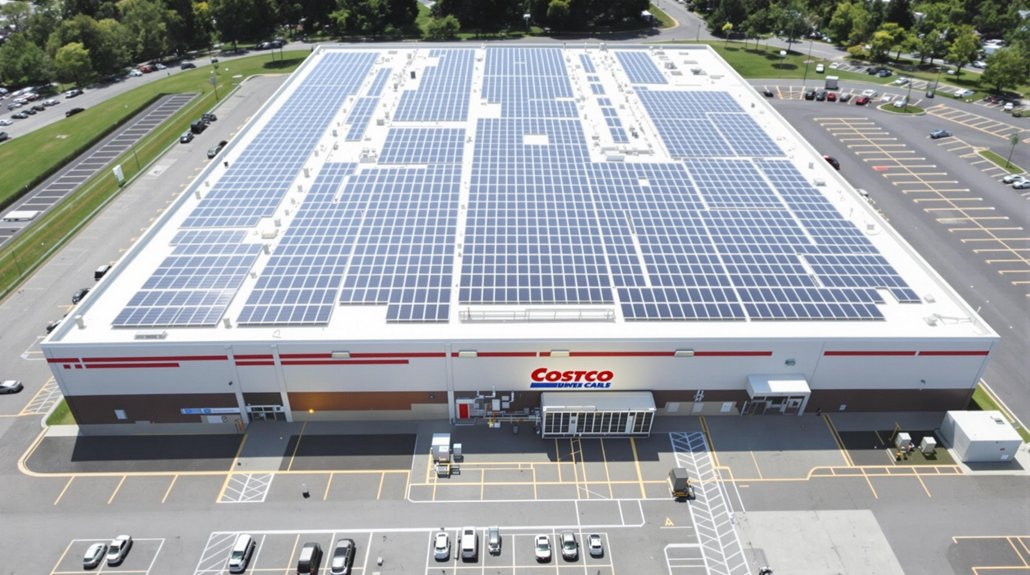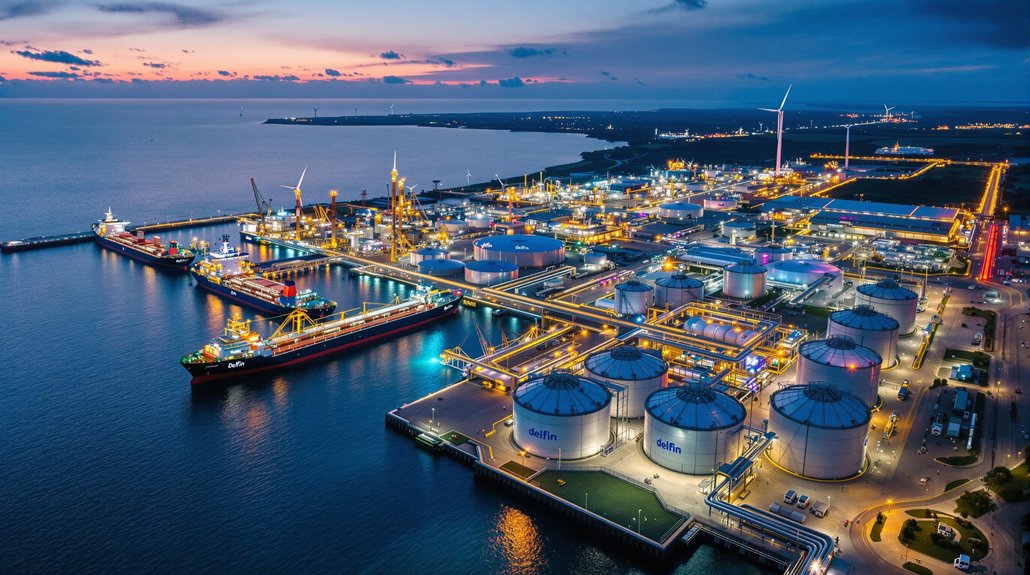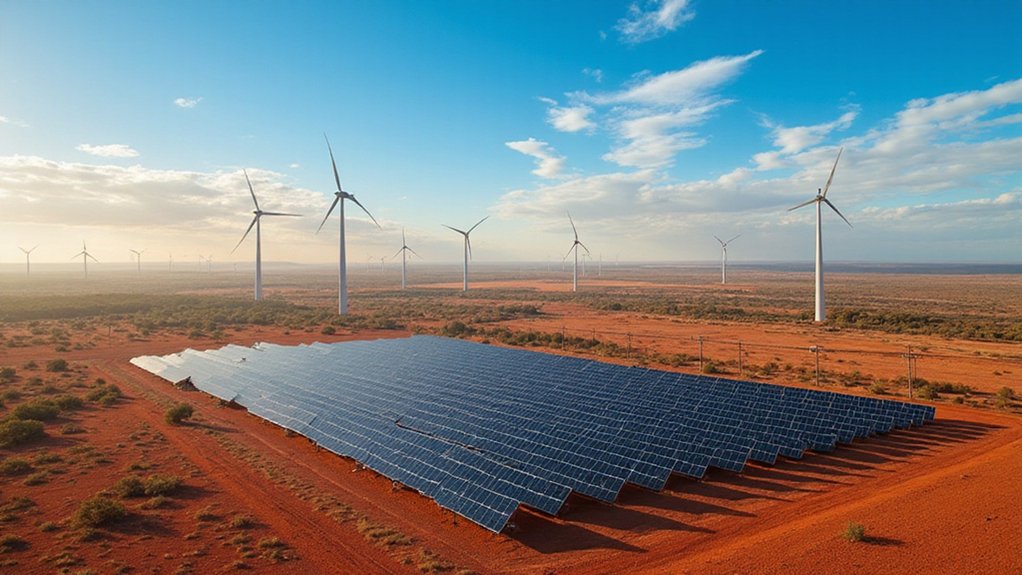Innovation floats—literally—in Norway’s bustling salmon farming industry. The country dominates global salmon aquaculture, with a staggering 95% of its fish farming dedicated to these pink-fleshed swimmers. But all that fish production comes with a carbon footprint. Enter floating solar panels—the latest bright idea altering the game on Norway’s frigid waters.
Norwegian salmon farms traditionally guzzle diesel like teenagers drain soda cans. Not exactly eco-friendly. Companies like Alotta are changing this by slapping solar panels onto floating platforms. Genius? Maybe. Necessary? Absolutely. These systems generate electricity right where it’s needed—no complicated transmission required. This approach mirrors the global trend where battery storage advancements are helping integrate renewables into various energy systems.
Salmon farms swapping diesel addiction for solar solutions—innovation floating where the fish are.
Emilsen Fisk jumped on the solar bandwagon early. Their Alotta Solar Hybrid 120 system cranks out up to 160 kW at peak performance. That’s about 80,000-90,000 kWh annually. During summer months, their operations run almost emission-free. The installation has created a notably quiet environment at the site, enhancing working conditions for staff.
Winter? Still helpful, just less so. Those dark Arctic months aren’t ideal for solar, but modern panels still produce even in low light. The system contends with dramatic seasonal variations, from under 5 hours of daylight in January to over 20 hours in mid-summer. Not bad for a country better known for fjords than sunshine.
The Norwegian government isn’t just sitting back watching. They’re throwing cash at the problem. Enova, their green alteration agency, hands out grants to make these projects financially viable. Money talks. Fish farms listen. The math works out—initial investment plus government support equals long-term savings. Diesel costs drop. Emissions plummet.
Success breeds imitation. After their first floating solar installation delivered results, Emilsen Fisk promptly ordered seconds. Others are following suit. It’s a trend with legs—or fins, rather.
The tech keeps improving too. Today’s solar panels aren’t your grandfather’s photovoltaics. They’re sophisticated energy-capturing devices that function even when conditions aren’t perfect. For an industry seeking sustainability credentials, it’s a perfect match.
Norway’s salmon industry is proving something important: even in challenging environments, renewable energy works. No excuses. Just results. The future of fish farming might just be powered by the sun. Who would’ve thought?
References
- https://www.fishfarmingexpert.com/alotta-emilsen-fisk-enova/fish-farmer-orders-worlds-most-northerly-floating-solar-power-plant/1896949
- https://www.fishfarmingexpert.com/aquaculture-emilsen-fisk-enova/fish-farmer-orders-second-floating-solar-plant-after-summer-of-success/1960038
- https://www.pv-magazine.com/2023/01/04/floating-solar-tech-for-aquaculture/
- https://cleantechnica.com/2024/08/23/floating-solar-meets-fish-farming/
- https://www.esru.strath.ac.uk/Documents/MSc_2016/Syse.pdf
